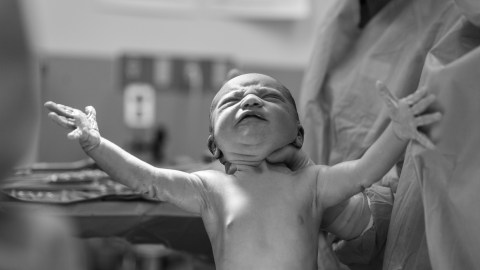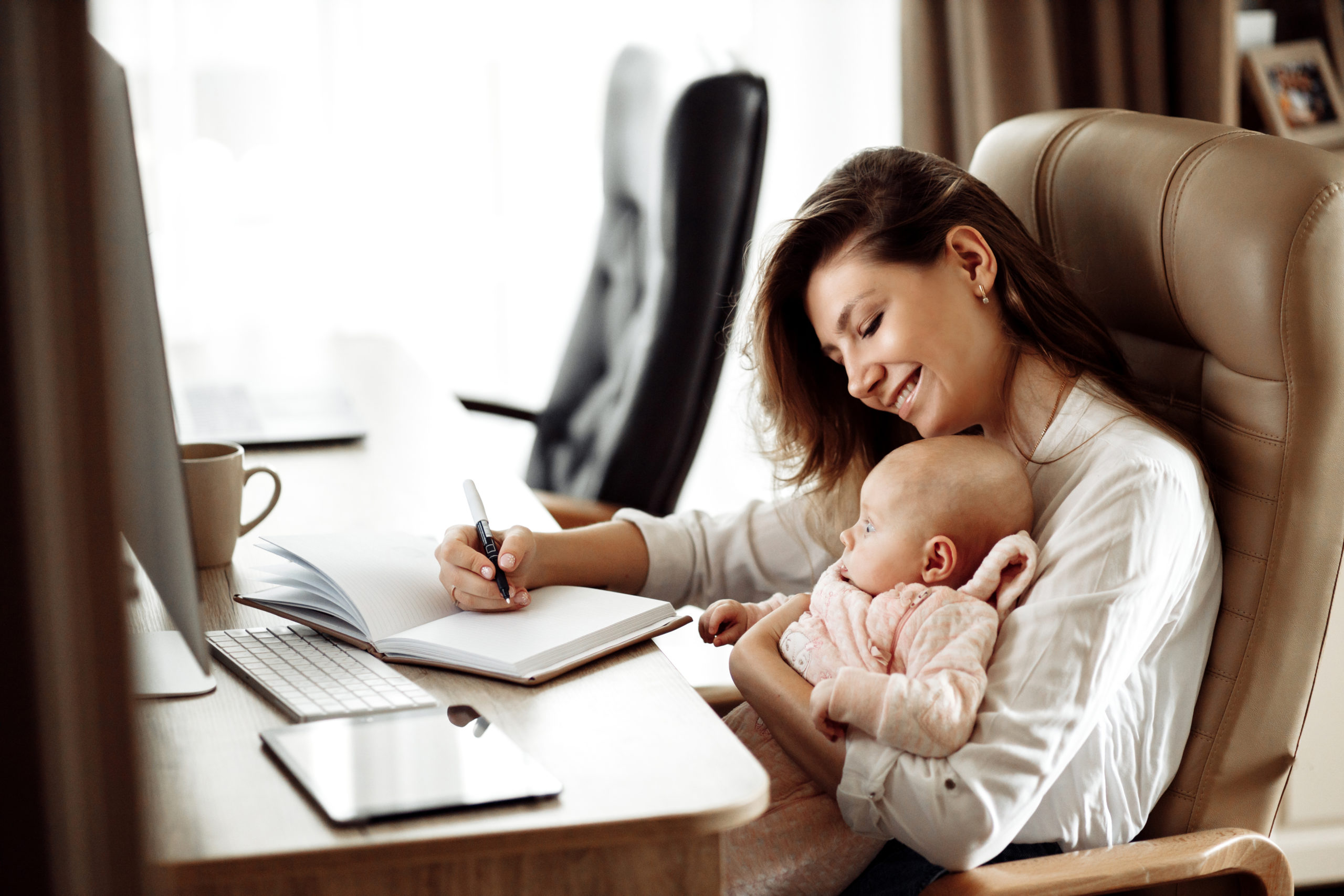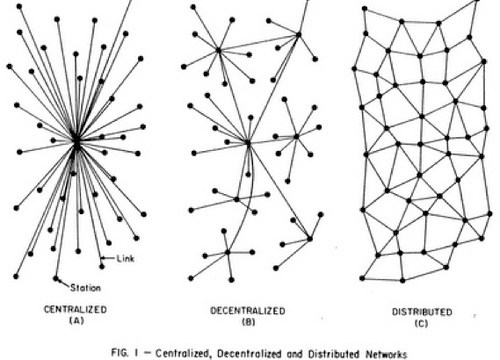Decades of data suggest parenthood makes people unhappy

(Photo by Alex Hockett / Unsplash)
- Folk knowledge assumes having children is the key to living a happy, meaningful life; however, empirical evidence suggests nonparents are the more cheery bunch.
- The difference is most pronounced in countries like the United States. In countries that support pro-family policies, parents can be just as happy as their child-free peers.
- These findings suggest that we can’t rely on folk knowledge to make decisions about parenting, on either the individual or societal levels.
How does one live a happy, meaningful life? For many the answer is, at least in part, raising children. Watching a child grow and learn about the world is a joyous experience, and the time spent providing unconditional love and care offers spiritual dividends. Then in our golden years, children can be a source of palliative comfort.
This view is so entrenched in our culture that many people, especially women, are pressured by friends and family into having children and feel they must justify their reason not to.
As is often the case, social reality proves more complicated than the worldview learned at mother’s knee. Decades of research has compared the happiness and well-being of parents to nonparents, and the verdict is in: a lot of parents are less happy than their childless peers. But not all of them.

A mother soothes her baby child
(Photo by Jenna Norman / Unsplash)
The parent trap
Headlines claiming parents to be more dejected than nonparents certainly grab our attention, but such stories are hardly news. Empirical studies have been tracing out this pattern since the 1970s. Here are three sample papers demonstrating the trend:
A 2011 review by Thomas Hansen, a researcher at Norwegian Social Research, compared our folk understanding on the relationship between parenthood and happiness to the evidence. It found that people believe “the lives of childless people are emptier, less rewarding, and lonelier than the lives of parents,” but that the opposite proved true. Children living at home interfered with their parents’ well-being.
A meta-analysis by the National Council on Family Relations looked at a more specific metric of happiness: marital satisfaction. It found that couples without children reported more romantic bliss. The difference was most pronounced among mothers of infants, while fathers disclose less satisfaction regardless of the child’s age. The authors noted the discrepancy likely resulted from role conflicts and restrictions on freedom.
Finally, a study published in the American Journal of Sociology looked at 22 Organisation for Economic Co-operation and Development (OECD) countries and compared the association between parenthood and happiness. Researchers Jennifer Glass (University of Texas, Austin) and Robin Simon (Wake Forest University) found that nonparents reveal higher levels of well-being in most advanced industrialized societies.
The happiness gap was widest in the United States, where parents were 12 percent less cheerful than childless adults. Fourteen other countries—among them Ireland, Greece, Britain, New Zealand, Switzerland, and Australia—also showed a less-than-sunny outlook for parents, but not to as large a degree as in the U.S.

A Spanish family sit down together for a meal.
(Photo from Flickr)
Are the kids alright?
Based on a glance at this research, one could posit that children are a predominant source of unhappiness—and yes, we all know that one kid who is Exhibit A for this statement. But these researchers were careful to note that these effects are correlative, not causative, and there are many factors in the mix beyond progeny.
Hansen’s review points out that the parents most susceptible to unhappiness were women, singles, those in lower socioeconomic strata, and those living in less pro-parenthood societies. Meanwhile, the National Council on Family Relations saw the largest decrease in martial satisfaction among the higher socioeconomic groups, likely because their status afforded them greater freedoms before having children.
Glass and Simon found eight countries where parents reported higher levels of happiness than nonparents, including Spain, Norway, and Portugal. Their analysis indicated that countries offering “more generous family policies, particularly paid time off and childcare subsidies, are associated with smaller disparities in happiness between parents and nonparents.”
A potential reason? Parents in countries supporting pro-family policies contend with fewer stressors. They can take more parental leave, enjoy expansive subsidized care, and aren’t as financially burdened by educational expenses. This is especially true when compared to the U.S., which provides little support for parents compared to the other countries in the study.
Importantly, Glass and Simon also found that such policies had no detrimental effect on the happiness of nonparents. In fact, the presence of strong pro-family policies led to greater happiness for women of all statuses.

A young mother sits with her daughter.
(Photo by Katie Emslie / Unsplash)
Parental unhappiness is… complicated
Taken together, these three studies suggest a major cause of parental despondency is scarcity. Lower-class parents find it difficult to patch together the money, resources, and social networks necessary to succeed in their own lives while also supporting their children. Even upper-class parents can grow weary if a resource in short supply is traded off, such as time or the freedom to self-actualize.
Countries with pro-family policies can offset these scarcities to help balance the happiness gap between parents and nonparents.
But research in this field casts a wide net. As studies shift their focus, they draw different conclusions to give us a fuller, if more complicated, picture of parenthood’s many pitfalls. Taken together with scarcity, all of the following factors likely have some pull on parental happiness, though it is difficult to say to what degree.
Culture of extended families. Countries like Spain and Portugal, where parents report being 3.1 and 8 percent happier than nonparents respectively, culturally center on extended families. The Spanish manage personal problems through family, an approach that extends to child rearing where many hands make light work.
In sharp contrast, the United States culturally centers on a sense of individualism and mobility. Its nuclear family model consists of small family units where parents take near sole responsibility for raising children while the extended family lives in separate domiciles, sometimes hundreds of miles away.
Who becomes a parent. Glass and Robin note that their results could be tempered by parental selectivity. They propose that countries like Spain and Italy, which have low fertility rates, may select toward people who truly desire to have children. The United States, with its much higher fertility rate, could have people not strongly predisposed to parenthood having children nonetheless.
Children in the home. An analysis from the Institute for Family Studies found that men aged 50-70 are happier than their childless peers if their children have left home. However, men who still had children at home reported being less happy than either nonparents or empty nesters. For women of the same age, being an empty nester resulted in a slight decrease in happiness compared to nonparents, but a steep decline if the children lived at home.
Number of children. The same analysis showed that women with only one child were seven percentage points less likely to report being happy than nonparents, while women with three or four children showed no discernible difference. No significant variance emerged for men.
Nicholas H. Wolfinger, the analysis’ author, admits these results are counterintuitive and posits two possible explanations. The first is unmet family size preference redounding unhappiness, as many people settle for fewer children than they’d like. The second is a strong sense of familism offsetting parenthood’s more negative effects. It is unlikely that family size in-and-of-itself causes a decline in happiness.
Parenting style. The way a parent approaches parenting may have substantial effects on their happiness. Developmental psychologist Alison Gopnik argues in her book The Gardener and the Carpenter that our modern parenting model, in which we view children as material to be molded into a particular type of adult, is not only wrongheaded but also a source of stress and misery for many parents.
“It isn’t just that the [current] parenting model isn’t the natural model, it’s also just not a very productive model,” developmental psychologist Alison Gopnik told Big Think. “It hasn’t helped parents or children to thrive. It’s led to a great deal of anxiety and guilt on a part of parents and a great deal of hovering expectations for children that really aren’t necessary and in fact may even be counterproductive if we still want children to innovate and create.”
Self-perception.A Pew Research Center survey found that parents who reported being very happy with life also believed they were doing an excellent job as a parent.
We still have much to learn about parenthood, and the results of so much variegated research can sometimes feel in contention. Even so, it should be clear that our folk assumptions about family are in need of a major update, and we must reconsider our views on parenthood, both from an individual perspective and with regard to social policy.
With that said, there are two strong conclusions we can draw from what we do know. For nonparents, your choice to be childfree will not doom you to a sullen, meaningless existence where you’ll spend your final days contemplating a life wasted, like some inverse It’s a Wonderful Life.
Nor are parents doomed to immolate their happiness on the altar of their child’s future. Parenthood can be a source of exuberance, but simply raising a child will not magically bring contentment to your life. If anything, you’ll have to work harder for that contentment as many factors, some in your control, some not, dictate parental happiness. Anyone considering parenthood should weight them judiciously before making a decision.





